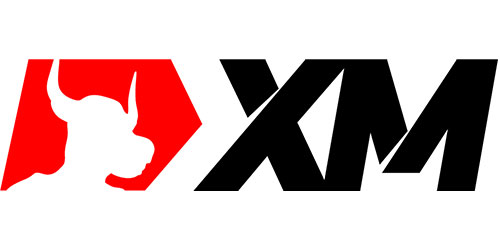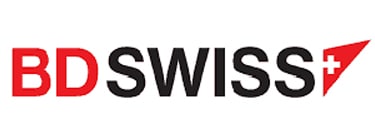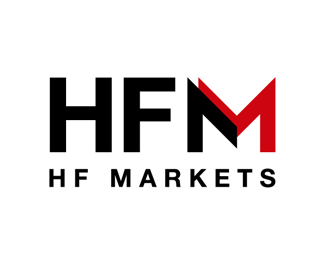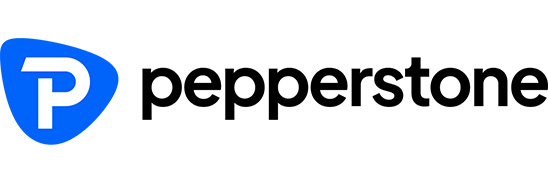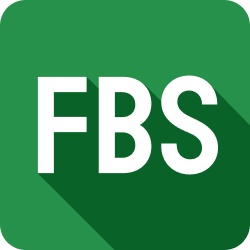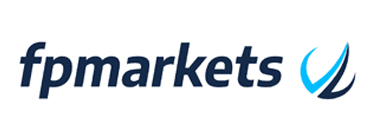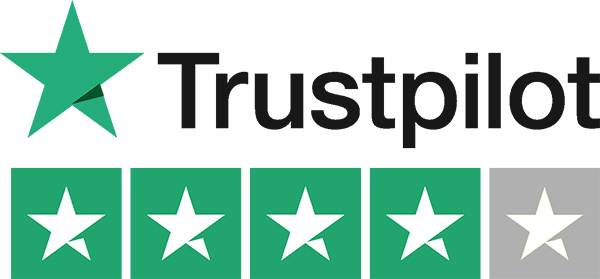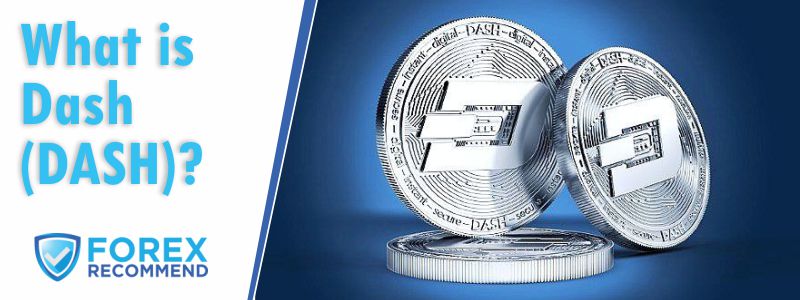
Dash is a cryptocurrency that was launched in 2014 and was initially known as Xcoin. It eventually changed its name to Darkcoin and became Dash in 2015. Dash was initially designed to guarantee the privacy and anonymity of users.
Top 10 Forex Brokers
Broker
Rating
Regulators
Min Deposit
Leverage
Website
Top 10 Forex Brokers
Broker
Rating
Min Deposit
Leverage
In the whitepaper of Dash, Evan Duffield and Daniel Diaz (the authors) described Dash as a privacy-centric cryptocurrency that was based on the work of the founder of Bitcoin, Satoshi Nakamoto.
The company behind dash features strong encryption components, but it has re-evaluated its ambitions, and Dash now aims to become a medium for daily transactions, much like Bitcoin and other cryptocurrencies.
Dash is an open-source project that includes a proprietary decentralized payment network, functioning much like PayPal, VISA, and other payment gateways.
Dash (DASH) components table:
| Component | Dash (DASH) |
| Technology | Open-Source, Decentralized Payment Network that uses the X11 algorithm and a Proof-of-Work consensus method as well as PoS |
| Reliability | Very high because transactions are untraceable |
| Market Value | $1.9 billion |
| Open-Source – Yes/No? | Yes |
| Consensus Method | Proof-of-Stake (PoS) and Proof-of-Work (PoW) |
| DApp relation | On-client, the Dash Platform can be used to build Decentralised Applications (DApps) |
| Founders | Evan Duffield is the original author |
| Founding Date | 2014 |
| Headquartered | United States |
Dash is an open-source and decentralized cryptocurrency platform and coin that has a market cap of more than 1.9 billion USD. Dash is a decentralized and peer-to-peer network that allows for the easy and cheap flow of currency from one point to another.
Dash uses a two-tier network that uses both miners and Masternodes to run in parallel, making it easy to process transactions quickly and at lower costs.
Dash has innovative technology such as InstantSend, allowing for instant transaction confirmation by using “Masternodes” that provides a second layer of support, ensuring that the blockchain is prepared to process all transactions.
In addition to this technology, Dash allows for decentralized applications (DApps) to be built on its platform because it is a technology stack. There are two main architectural components, namely Drive and DAPI, turning the Dash platform into a cloud where developers can interact with their applications.
How does Dash Work?
Like Bitcoin, Dash is a digital currency that can be used to either send or receive payments. Dash was built on the same blockchain technology that Bitcoin uses, but there are several improvements to this technology.
Dash is extremely popular because it offers improved privacy as well as higher transaction speeds than Bitcoin.
In terms of transaction networks, Dash uses Masternodes to provide an additional layer of support. This ensures that blockchain technology is prepared to process all incoming transactions.
In terms of transaction speed, Masternodes take between 1 to 2 seconds to verify transactions. The Masternodes lock the funds while they verify the authenticity of funds for transactions, ensuring that these funds are not spent again before the current transaction is confirmed.
This ensures that transaction speed is reduced and keeps the Dash network extremely safe, healthy, and efficient. The Masternodes secure data, process, and facilitate instant as well as private transactions.
Dash-based projects include the following:
- Masternodes
- PrivateSend
- InstantSend
- Self-Governing and Self-Funding Protocols
The advantage that Dash has over other cryptocurrencies, especially Bitcoin, and the reason why it is so popular, is that it offers improved privacy as well as higher transaction speeds.
Dash is also more popular because it provides complete privacy and the highest level of security because it cannot be traced.
Masternodes are a way for Dash to solve the scalability problem that Bitcoin faces. Instead of using a miner to order and verify transactions, Masternodes perform the job that miners ordinarily would.
With this behavior, resources are freed up from miners, and it allows for them to concentrate on network security. In addition to this, there are over 5,000 Masternodes, which means that the Dash network is completely and fully decentralized.
This decentralization of power balances out the Masternode networks and protects the network from any rogue miners, preventing a 51% attack. Even if rogue miners try to overpower the network by achieving more than 51% of mining power, the Masternode operators keep all miners in line.
To ensure that the Masternodes’ incentives are aligned with the best interest of the network, every Masternode operator must pay a 1,000 DASH deposit as collateral and commitment towards the Dash network.
If a Masternode operator acts poorly or tries to cheat the network, they will subsequently lose the 1,000 DASH that they locked in as collateral. This ensures that all Masternodes are transparent, fair, and honest.
The users who run Masternodes have been rewarded a share of every block that is added. These users also have voting rights, allowing Dash to run as a fully decentralized network.
What are the Dash-based Projects?
Dash has the following proprietary applications and features:
- Masternodes
- PrivateSend
- InstantSend
- ChainLocks
The Bitcoin blockchain uses miners who verify transactions that take place over the network, and these miners are subsequently rewarded for their work and effort. With the Dash cryptocurrency network, there are miners, but the system is divided into two different parts, namely Masternodes and miners.
For a user to become a Masternode, they must deposit 1,000 DASH. These Masternodes are special servers that perform important functions on the network, such as Private Transactions (PrivateSend) and instantaneous transactions (InstantSend).
One of the largest problems that Bitcoin has is that it is public, meaning that Bitcoin transactions can be viewed by anyone. With PrivateSend from Dash, privacy is added to all transactions, making Dash transactions untraceable.
With InstantSend, all transaction speeds are reduced to between 1 and 2 seconds, but this comes at a fee.
ChainLocks are a unique feature of the Dash network that offers certainty when payments are accepted. This technology, when used along with InstantSend, creates a safe environment in which payments are accepted immediately and without the risk of “Blockchain Reorganisation Events.”
For what is Dash used?
Dash is used as a medium for daily transactions, with DASH used as a currency either as cash, credit cards, or PayPal.
Developers can use the Dash network to build and act with different decentralized applications (DApps).
Dash offers a user-friendly experience and complete privacy to everyone who transacts with DASH coins.
Is understanding Dash hard?
No, understanding Dash is not hard.
Dash is a decentralized and peer-to-peer network that allows for fast, easy, affordable online payments without using traditional financial institutions. Dash has some similarities with Bitcoin, such as decentralization and cryptographic security, but there are also some differences in transaction speed, privacy, and other factors.
Another important consideration towards Dash is that it wants to become a medium for daily transactions, and it has a very wide net to realize its ambition. Dash expanded into Venezuela in 2018, and it became the first foray into an economically distressed country.
The demand for cryptocurrency overall and the number of Dash users has increased rapidly since Dash was introduced in Venezuela because of the need for transactional currency.
During an interview with the CEO of Dash, Ryan Taylor, he said that cryptocurrency is vital for survival in Venezuela. There is a lot of civil unrest and hyperinflation, which has made the local currency useless.
Citizens of Venezuela have turned to different cryptocurrencies such as Bitcoin and Dash because transactions can be made quickly and at reduced costs.
It is important to understand how Dash works because it can be used as a currency, providing users with many benefits, especially considering the rapid and widespread adoption of cryptocurrencies.
What is Dash's Technology?
Dash's Technology is based on an open-source and peer-to-peer network that is highly secure and decentralized. Dash has unique features that set it apart from other Altcoins, including Masternodes, InstantSend, and PrivateSend.
In addition to this, Dash also allows developers to build and interact with different DApps on its network. Dash has seen increased adoption because of its potential to be used as a currency, a hedge against inflation, and an easy and fast way to transact without the transaction or user being tracked.
Dash's evolution can be outlined as follows:
- January 2014 – Dash was launched as Xcoin by Evan Duffield during a fork of the Bitcoin protocol.
- Xcoin was rebranded as Darkcoin, where it received bad press for being used in many darknet markets.
- March 2015 – Darkcoin rebranded to Dash as a portmanteau of “digital cash.”
- By August 2016, all connections to darknet markets were cut.
- 2017 – Duffield and other people who were working on Dash took up space in a business incubator at the Arizona State University, with the Dash DAO later funding a blockchain research lab which was located at the university.
- As of April 2018, Dash became one of the most popular cryptocurrencies.
- From February 2019, Dash became the most popular cryptocurrency in Venezuela.
In terms of Dash's potential, it has been one of the popular cryptocurrencies since 2017, even by many crypto experts. One of the main reasons why it is so popular is because Dash solves major problems that cryptocurrencies such as Bitcoin struggles with, namely privacy and transaction speeds.
Dash is a fundamentally strong cryptocurrency for the following reasons:
- Dash improves speed and privacy, giving it a major advantage over Bitcoin.
- To keep investors interested, a cryptocurrency project must ensure consistent improvements in technology, and Dash is a cryptocurrency project that is self-governing and self-funding.
These factors mean that Dash can continually improve its technology and grow its user base, which is extremely fundamental for the future of Dash. The average transaction fee for Dash is between $0.1 to $0.2, while other cryptocurrencies charge up to $5, which means it is much cheaper to transact using DASH coins.
What is Dash price?
Since its launch in 2012, Dash's price has seen several changes indicated below.
| 2017 | 2018 | 2019 | 2020 | 2021 To date | |
| DASH Price High | $1550 | $1,285 | $178 | $133.55 | $440.89 |
| DASH Price Low | $11 | $61.21 | $41.25 | $42.95 | $115.12 |
Is Dash Open Source?
Yes, Dash is an open-source cryptocurrency network.
Dash was forked from the Bitcoin protocol, and it is also a Decentralized Autonomous Organization (DAO) run by a subset of users, namely Masternodes.
Dash operates a peer-to-peer network without any central authority, with transactions managed and money issued collectively by the network.
The fact that Dash is open-source is good for investors because there is a high level of transparency involved. Even though Dash is open-source, it has a high level of anonymity and privacy, which also ensures further security and reliability.
What is the best Dash wallet?
A Dash wallet is a software application that allows users to store their Dash (DASH) funds safely. The application has a private key, like a password, which is only known by the user. There is also a wallet address, or public key, that is like a bank account number that can be used to receive and send funds.
There are several different types of Dash wallets available, each with unique features and levels of security. The types of Dash wallets are:
- Hot Wallets or online wallets are always connected to the internet. They are considered unsafe because they are vulnerable to hacking attempts. Users are advised to only keep transactional funds in this wallet and not their entire lump sum.
- Cold Wallets or offline wallets are software applications that do not need an internet connection to operate. They are considered the safest type of wallet because they are not subject to hacking attempts.
- A physical Dash wallet is a piece of hardware like a USB device where cryptocurrency funds can be kept offline and will be protected by passwords, phrases, and PIN codes.
- Web Wallets are online wallets that are add-ons to an internet browser.
- Desktop Wallets are software applications that can be used on PCs or Laptops that run Linux, Windows, or Microsoft Windows.
- Paper Wallets are another safe type of wallet. It is a physical piece of paper that has a QR code or a key that can be scanned or typed in, allowing the user access to their Dash account.
Both the functions and the importance of Dash wallets are like that of a physical wallet used to store paper money. Dash wallets are used to store, transfer, receive, and manage DASH in a central place.
When DASH coins are stored in a wallet, the software generates a private key or hexadecimal code that must be kept safe. This code is used alongside a private key that is linked to a certain amount of DASH.
Some of the best Dash wallets are as follows:
- Jaxx – which is a well-known wallet and considered as one of the top Dash wallets. Jaxx is known for its portfolio mode as well as updated security, comprehensive crypto news, and a wide range of different features.
- Exodus is another well-known desktop wallet for DASH coins, and one of its main features is its compatibility with the instant crypto exchange program called ShapeShift, allowing users to trade different cryptocurrencies without any notable time constraints.
- Dash Core Wallet is Dash's proprietary wallet that has been designed specifically for DASH coins. It allows a wide range of features, and it has been optimized for use on desktops.
- Ledger Nano S is one of the most popular crypto wallets that supports a wide range of different coins. Ledger Nano S secures DASH with a private key as well as a unique PIN code.
- Trezor is a popular hardware digital currency wallet and one of the first digital wallets that were ever created. Trezor supports a wide range of cryptocurrencies, and it is small, compatible, portable, and user-friendly.
- KeepKey is not as well-known, and it is pricy, but it is a safe and trusted hardware wallet that supports seven major cryptocurrencies, including DASH.
What is Dash Burn rate?
Coin burns refer to the process that is involved with sending coins to a public or unusable account that has no retrieval code, thereby destroying the coins because they can never be accessed again.
The act of coin burns removes coins from the available supply, increasing the scarcity of the coin if the coin has a limited supply. The reason why coins are burnt relate to these reasons:
- New coins can be created.
- Token holders can be rewarded.
- Coins that were not sold after an Initial Coin Offering (ICO) can be destroyed.
Dash's burn rate is not known by reliable sources, but thousands of coins are burned monthly, boosting the value of the coin because it becomes scarcer with every burn, leading to the maximum supply of 18 900 000 DASH being reached with 10 378 912 DASH in circulation now.
What can you do with Dash?
- To pay for goods/services
- To send and receive funds
- Investment
- Trade/exchanging of coins
In terms of using Dash as a currency, many retailers and merchants are starting to accept payments in DASH, allowing users to pay for goods and/or services using this crypto.
DASH coins can be sent/received to a compatible wallet and can then be converted to other crypto coins or to fiat money on supporting and compatible exchange trading platforms.
Investors can pay fiat money to purchase DASH coins that can be kept long-term, allowing these retail investors to grow their wealth.
DASH can be traded and exchanged on different decentralized trading platforms as well as through different brokers. Retail traders can speculate on the price of DASH by trading contracts for difference, allowing them to profit from the appreciation/depreciation of the coin without owning the physical asset.
What are the criticisms against Dash?
There are several criticisms against Dash, including the following:
- After its launch in 2014, Dash was subject to the speculation of “pump and dump” schemes, and when it was rebranded to Darkcoin, it received very bad press because it was used in many darknet markets.
- Critics against Dash say that it is not a truly decentralized cryptocurrency because there are many important functions carried out by Masternodes. If someone could control the majority of Masternodes, they could potentially control the overall Dash network – something that is difficult but possible.
- Dash is facing tight competition with ZCash and Monero as alternative privacy coins. According to many critics, the privacy that Monero gives is a lot better than that of Dash.
- Because of the privacy that Dash is known for, it is more likely to be noticed by regulators. This is because there may be many illegal traders who prefer Dash because it is completely anonymous and cannot be traced.
- When dash was launched, there was an event known as “Instamine Controversy.” During the launch, 2 million DASH were mined within 48 hours of the launch. However, only 18 million DASH could ever be mined, and one of the largest beneficiaries of this bug was Dash's creator.
- Dash faces a lot of criticism because sceptics believe that Dash's transactions can be abused and used in illegal trades because of privacy and anonymity. Privacy coins like Dash mean that investors can opt not to declare the income that they make from their DASH investment, making it difficult for the taxman to track investors down for tax evasion.
What is the biggest competitor of Dash?
The biggest competitor of Dash is Monero.
Monero was also founded in 2014, and it is a secure, private, and untraceable cryptocurrency that is based on the CryptoNote protocol. Both Dash and Monero are involved in financial services, technology, blockchain technology, and fintech industries and sectors.
However, Monero is much less popular than Dash and has fewer daily transactions recorded. The market capitalization for Dash is currently $1.9 billion, while Monero is sitting at 4.9 billion.
In terms of price stability, both Monero and Dash show sharp increases and decreases in their price, with the following highs and lows indicated over the past year to date (YTD):
- Dash – a Low of $101 and a High of $183, which shows a change of 81% in a year, with significant fluctuations in-between.
- Monero – a Low of $157 and a High of $271, which shows a change of 72% in a year, with significant fluctuations in prices between last year and now.
In terms of demand, Monero has higher popularity and demand in the Altcoin market and cryptocurrency space overall, with Monero ranking #37 in the overall Altcoin market while Dash is ranked at #64.
In terms of technology, Dash was forked from Bitcoin, and it uses a two-tier network to secure transactions. The first tier has nodes that carry out different mining operations, while the second layer has Masternodes that operate under a Proof-of-Stake consensus mechanism.
Monero, on the other hand, has several features that make its technology unique, and the project aims to achieve the highest level of decentralization. Privacy is achieved by using ring signatures, stealth addresses, and many other security features that make transactions untraceable and make it near-impossible to hack the network.
While Dash is a very popular cryptocurrency that is used by many, Monero has surpassed it with its unique and improved technology and solutions.
What is the Dash Payment Network?
Dash itself is a next-gen, peer-to-peer payment network and a cryptocurrency where transactions are recorded on the Dash blockchain, which is a decentralized, distributed, and public ledger.
Dash's unique infrastructure provides users with a digital currency that is secure as well as portable and fungible.
Dash uses InstantSend, allowing for instant transaction confirmation because Dash uses Masternodes that verify transactions within 1 to 2 seconds. There is also a PrivateSend feature that ensures that the transaction is completely private.
Can Dash and Bitcoin Coexist?
Yes, because Dash came from a fork in Bitcoin, the two projects share some similarities, but they also have their differences. Dash is an improvement on the technology of Bitcoin where transaction speed and privacy are concerned.
Both Dash and Bitcoin can coexist even if they serve the same purpose, as a digital currency that can be used to pay for services and/or goods. However, Dash goes further than this, offering lightning-fast transaction speed, lower fees, additional privacy features, and community governance.
Bitcoin remains the original cryptocurrency, and it is still the most popular of all cryptocurrencies, with a massive market cap of over $1.09 trillion.
How does Dash make revenue?
Dash makes revenue from transaction fees and mining activities.
Masternodes are used to enhance network security and to ensure quick transaction speeds. Masternodes and miners are each compensated with 45%, while 10% of all coins are allocated towards future funding of projects and overall network improvements.
Transactions on Dash range between $0.1 and $0.2, with some of the fees allocated to rewards and revenue for the network.
Dash is partnered with more than 4,800 service providers as well as retailers, and consumers have thus far spent over $1 billion worth of DASH to pay for products and services.
Dash also makes revenue by receiving different donations from funds and through offers that require individual and institutional memberships.
How long does it take to mine Dash?
It would take 67 days to mine 1 DASH at a rate of 65,000 MH/s, using 1,500 Watts of power at $0.10 per kWh and a block reward of 1.5 DASH.
Dash is an altcoin that can be mined in the same way that Bitcoin is mined, using specialized computers. Dash uses the X11 hashing algorithm, and the Dash network is secured by a Proof-of-Work (PoW) consensus mechanism.
Dash has a unique two-tiered network that consists of miners as well as Masternodes, with mining happening on the first layer. The mining process involved with Dash is crucial to generate new coins and to secure the network.
Mining can happen either individually, through a mining pool, or by using a mining service.
The miners that create new Dash coins are rewarded with 45% of the rewards, with an additional 45% given to Masternodes and 10% held back to fund future projects.
Miners in the Dash network complement the Masternodes (MNs) who secure the system. MNs are participants who pay a deposit of 1,000 DASH and who agree to always keep their system online.
MNs maintain the PrivateSend and InstantSend functions and vote on critical business decisions. MNs can be considered miners who have a higher stake in the Dash network.
The 1,000 DASH deposit is considered collateral, and it encourages MNs to ensure that the platform is not corrupted. In addition, Dash miners help to solve the issue of double-spending. Before blocks are added to the blockchain, Miners check the latest version against their own.
Both versions much match for the Dash network to reach consensus and to allow for the process of verification to start. This ensures the validity of all transactions and prevents the same coin from being spent twice.
What can Dash smart contracts do?
A smart contract can be defined as a computer program or a transaction protocol. The main purpose of a smart contract is that the program or transaction automatically execute, control, or document relevant events as well as actions as per the terms of the contract or agreement.
Smart contracts intend to reduce the need for trusted intermediaries, arbitrations, fraud loss, enforcement costs, and the reduction of accidental or malicious exceptions.
Dash is not compatible with smart contracts yet, but with the Turing Machine that is built into Bitcoin and subsequently into Dash (because it forked from Bitcoin), these blockchains should be able to implement smart contracts. All the development team must do is build a user interface around it. However, with the unique aim that Dash has, it will not be the same as with Ethereum's smart contracts.
Does Dash have a future?
Yes, Dash has a future.
Dash has a lot of potential because it is secure and guarantees fast and private transactions. This attracts a lot of users and can ensure that Dash establishes a wide range of strategic partnerships.
Dash has a solid development team, a powerful blockchain network, and it is fast becoming an accepted payment medium in countries such as Venezuela.
Dash has more than 4,800 partnerships worldwide, making it a good investment option. However, the price of Dash is extremely volatile, and it has seen fluctuations in the past year.
Despite these factors, Dash is still gaining traction as a payment service provider that guarantees security and several anonymity features with fast execution speed. If Dash can maintain this expansion, it can gain greater acceptance in emerging nations, allowing the network and project to flourish.
Can Dash be used as currency?
Yes, Dash aims to become one of the best mediums for daily transactions as a digital currency that can be used as cash, credit cards, or through PayPal. Dash already has more than 4,800 partnerships with retailers and merchants that accept payments in DASH.
Can Dash be tracked?
No, Dash cannot be traced.
Dash cryptocurrency transactions cannot be traced. Dash allows users to choose whether their transactions are anonymous and private by offering the use of PrivateSend.
This feature allows users to protect their identity by obscuring the origins of the funds. However, using this function raises transaction fees, but it ensures complete anonymity.
Dash can do this by using a mixing protocol that uses an innovative decentralized network of servers known as Masternodes.
Can Dash be hacked?
No, Dash cannot be hacked and does not have any record of a successful hacking attempt. Dash has a decentralized blockchain spread across thousands of independent nodes around the world.
The more nodes there are, the higher the security, and Dash has over 5,000 Masternodes that are in 45 countries, hosts over 140 ISPs, making the network extremely secure.
Can Dash make you rich?
Dash has the potential to become valuable, but it will not make you rich.
The reason is simple. Dash is not the only cryptocurrency project that aims to become a currency, with Bitcoin still in the lead on this. In addition, while Dash strives for complete privacy, other projects are more popular than Dash, for instance, Monero.
It is not likely that Dash will surpass either Monero or Bitcoin at any given time, meaning that it will not have the potential to make you rich.
Is it worth it to buy Dash?
Yes, it is worth it to buy Dash.
Three considerations make Dash worth the investment, namely:
- Future Potential
- Network Security
- Supply versus Availability
1. Future Potential
Many blockchain networks, like Bitcoin, are not focused on privacy or anonymity anymore, while Dash continues to believe in the major initial selling points that digital currencies started with.
Dash provides a wide range of features such as advanced security and PrivateSend, which allows users to carry out transactions completely anonymously. This gives Dash a benefit over other cryptocurrencies, keeping it relevant and ensuring that it will continue to trend.
2. Network Security
Dash is focused on security and privacy, which means that Dash has invested technical and financial resources to build a digital currency that delivers some of the best privacy and anonymity.
3. Supply versus Availability
The maximum supply of DASH is close to 19 billion, with more than half of the tokens that are in circulation. This means that there is a lot of room for the project to grow, which is a major advantage for investors.
You can buy Dash safely from these cryptocurrency platforms.
Is Dash a good investment?
Yes, Dash is a good investment opportunity.
According to a technical analysis done on DASH, the coin is nearing an overbought state, which allows traders and investors to trade with the necessary confidence that there will not be any short-term price reversals.
Since the start of 2023, Dash has experienced many bullish moves, and there have been many fluctuations, consolidations, and corrections. This means that Dash has a competitive market short term.
If the bullish trend continues, Dahs can see significant price increases in the long-term, with predictions at $400 for the end of 2023, $500 at the end of 2023, $560 for 2025, and up to $700 by 2025, boding well for long-term investors.
Dash has a very bright future ahead of it, especially considering developments within the Dash ecosystem and the overall cryptocurrency market.
Is Dash Legit?
Dash is legit.
According to “isthiscoinascam,” Dash has a project safety score of 6.66/10, with the following metrics:
- Development – 6.5/10
- Sentiment – 3.6/10
- Community – 10/10
- Awareness – 1.5/10
- Credibility – 8/10
- Volume – 7.2/10
Dash is legit, but it is currently faced with tough competition from other cryptocurrencies that are being used as a medium of payment, such as Ethereum, Bitcoin, Monero, and many others.
The controversy that Dash consistently faces surrounds the illegal transactions that can be carried out because of its privacy and anonymity. In addition to this, Dash is also subject to many “pump and dump” schemes.
Is Dash Supply limited?
Yes, Dash has a limited supply.
Dash, like Bitcoin, gold, silver, and many other financial instruments, has a limited supply. Dash's maximum supply is capped at 18.9 million DASH, meaning that there will never be any more DASH coins than this amount.
Dash is expected to reach this maximum supply by the year 2300.
Other cryptocurrencies that have limited supply include the following:
- Bitcoin (BTC) – 21,000,000 BTC
- Cardano (ADA) – 45,000,000,000 ADA
- Binance Coin (BNB) – 168,137,036 BNB
- XRP (XRP) – 100,000,000,000 XRP
Because Dash has a limited supply, it means that the value of the coin will increase as supply diminishes.
Does Dash have a fixed supply?
Yes, Dash has a fixed supply.
Fixed supply means that the 18.9 million DASH is the total number of coins that will ever exist. There will never be any more coins other than this amount. To increase the value of coins and to release new coins, DASH is often burnt.
Is Dash a good Altcoin?
Yes, Dash is a good Altcoin.
Dash is one of the top 100 altcoins in the cryptocurrency market because of these reasons:
- It is a cryptocurrency network where transactions cannot be traced.
- The network has never been hacked and cannot be hacked because of its complete decentralization.
- In terms of technology, Dash provides comprehensive transaction solutions at reduced fees and increased speeds, with the advantage of complete privacy.
- In terms of price changes, Dash has increased more than 80% YTD and 57,964% from its launch in 2014.
- Dash is a good investment because the price is forecasted to increase, especially as supply diminishes and adoption becomes more widespread.
Any cryptocurrency that isn't Bitcoin is referred to as an altcoin.
What is the difference between Dash and Bitcoin?
One of the main differences between Dash and Bitcoin is that Dash uses a unique technology to mine coins, namely an X11 algorithm. This is a modification of the Proof-of-Stake (PoS) algorithm.
In addition, Dash also uses CoinJoin mixing that scrambles transactions, making privacy possible. Both Dash and Bitcoin have different systems through which transactions are carried out.
Transactions on the blockchain of Bitcoin must be validated by all nodes in the network. This process is designed to ensure that there is consensus without a central authority, and it requires a large investment infrastructure consisting of full nodes that are only dedicated to mining operations.
With this system, Bitcoin miners can run full nodes that are committed to increasing the amount of time as well as money to ensure that all operations run smoothly. However, because Bitcoin faces issues with scalability, these operations are becoming difficult.
The process is also time-consuming, and it does not prevent any system clogging. This slows processes down, creating a backlog of transactions, and leads to higher transaction fees.
This makes Bitcoin less favorable as a currency because Dash uses a different system through which transactions are carried out. Dash has a subset of users or Masternodes.
They simplify the verification and validation process, with transactions taking up to 2 seconds through InstantSend, without the system being clogged when transaction volumes increase.
This makes Dash more suitable for transaction purposes as a currency than Bitcoin.
| Bitcoin | Dash | |
| Price change 20/21 | +98% | +80% |
| Market Cap | +1.09T | $1.9B+ |
| Past Hacks | None | None |
| Popularity | Very High | Medium |
What is the difference between Dash and Ethereum?
Dash is a peer-based decentralized system that allows users to send DASH in the form of electronic cash from one wallet to another. Dash aims to be as liquid as fiat currencies, and it is built on the Litecoin open-source code that was derived from the original Bitcoin source code.
Ethereum has a wide range of layers, and it is far more complex than both Bitcoin and Dash. Ethereum has a completely different goal in how users interact with cryptocurrency, and Ethereum consists of many moving parts.
Ethereum is a decentralized platform that allows for the development of decentralized applications (DApps), and it consists of several components, including smart contracts, DAOs, gas, ICOs, and more.
Both Dash and Ethereum have different value propositions, and these two differ in the following ways:
- Scalability – Ethereum is not as scalable, but neither is Dash, as it cannot handle the same volume of transactions that other cryptocurrency network sees. However, Dash works toward scalability more than Ethereum, making Dash immune to bottlenecks that Ethereum may suffer from.
- Security – Ethereum is not as secure because the platform has seen many scam ICOs and security threats, with the blockchain subject to four hard forks to fight hacks, theft, and fraud. Dash, however, does not deal with ICOs, and it has many more measures in place to tackle a wide range of issues.
- Volatility – Both Dash and Ethereum are susceptible to rapid, drastic price changes. Ethereum is the largest competitor to Bitcoin, while Dash is much lower on the list facing a wide range of volatility issues and price instabilities.
Ethereum is better as a platform where developers can build and deploy DApps, with the project showing a bright future in the Decentralised Finance (DeFi) industry, while Dash is better just as a currency and a platform that ensures privacy and fast transaction speeds.
| Ethereum | Dash | |
| Price change 20/21 | +400% | +80% |
| Market Cap | +$441B | $1.9B+ |
| Past Hacks | None | None |
| Popularity | Very High | Medium |
What is the difference between Dash and Dogecoin?
The main differences between Dash and Dogecoin are as follows:
- Dash uses an X11 algorithm while Dogecoin uses Scrypt, derived from Litecoin.
- Dash has a much lower market cap than Dogecoin as it is much more popular and has been around for longer.
- While both Dash and Dogecoin use a Proof-of-Work consensus mechanism, Dash's mining difficulty is much greater than that of Dogecoin.
Dash is better used as a currency that can pay for products and services, while Dogecoin is better used to reward content creators on different social media platforms such as Reddit.
| Dogecoin | Dash | |
| Price change 20/21 | +4100% | +80% |
| Market Cap | $31.3B+ | $1.9B+ |
| Past Hacks | None | None |
| Popularity | Very High | Medium |
What is the difference between Dash and NEO?
Dash is a cryptocurrency that aims for acceptance as an official currency that is used in transactions to pay for goods and services. Dash also ensures that transactions are completely private and anonymous.
NEO, on the other hand, is a blockchain-based platform that supports its native token and allows for the development of digital assets and smart contracts, like Ethereum. NEO aims to automate the management of digital assets, to build a distributed network-based smart economy system.
| NEO | Dash | |
| Price change 20/21 | +200% | +80% |
| Market Cap | $3.23B+ | $1.9B+ |
| Past Hacks | None | None |
| Popularity | Medium | Medium |
What is the difference between Dash and NFTs?
Dash is a cryptocurrency, platform, and network that aims for DASH to be a widely accepted and used currency in transactions. Nonfungible tokens (NFTs) are digital assets, with each asset that has a unique value and with not two NFTs holding the same value.
DASH coins are fungible, which means that one DASH will have the same qualities and value as another coin. The market cap for Dash is $1.9 billion, while the market capitalization of NFTs is set to be more than $1 billion by the end of 2023.
What is the difference between Dash and Monero?
Both Dash and Monero serve the same purpose, to ensure high levels of security and privacy. Dash is different from Bitcoin in that it has lower transaction fees, faster transactions, and complete privacy.
The differences between Dash and Monero are as follows:
- Traceability – Dash uses a Masternode network that consists of a hierarchy of nodes while Monero transactions are untraceable because of three unique technologies, namely ring signature features, the confidentiality of the transaction amount enabled by Ring CT, and stealth address capability that safeguards the address of the receiver.
- Privacy – Dash does not have a privacy policy, and the feature is optional for users by using PrivateSend. Monero, however, is private by default using cryptographically secure systems that enhance privacy.
- Bitcoin Fork – Dash was created from a fork in Bitcoin, while Monero was not formed because of a fork from Bitcoin, but a fork from the CryptoNote protocol and Bytecoin.
- Token Supply – Both Dash and Monero have a limited supply, with Dash at 18.9 million while Monero is capped at 18.4 million. However, Dash's blocks are generated within two and a half minutes while Monero takes between one to two minutes, making Monero inflatable.
- Storage – Monero (XMR) does not have a hardware-compatible wallet but only paper wallets and web wallets, making it more susceptible to hacking and theft. However, DASH is compatible with many different types of wallets.
| Monero | Dash | |
| Price change 20/21 | +70% | +80% |
| Market Cap | $4.9B+ | $1.9B+ |
| Past Hacks | None | None |
| Popularity | Medium | Medium |
What is the difference between Dash and Litecoin?
Both Dash and Litecoin are working hard to create new futures that will make their native tokens more user-friendly and usable in real-world applications, which will boost mass adoption.
One of the things that put Dash ahead of other altcoins is its fast transaction speeds, while Litecoin still struggles with many scaling issues that Dash has already overcome.
Because of its InstantSend feature, Dash overcomes Litecoin in some areas, except where transfer costs are concerned.
| Litecoin | Dash | |
| Price change 20/21 | +46% | +80% |
| Market Cap | $12.4B+ | $1.9B+ |
| Past Hacks | None | None |
| Popularity | High | Medium |
What is the difference between Dash and Solana?
Dash aims to obtain widespread adoption as a currency that can be used to pay for products and services, while Solana, much like Ethereum, facilitates DApp creation. Solana tries to improve scalability by using a Proof-of-History (PoH) combined with a PoS consensus mechanism.
While Dash is better for use as a currency in real-world applications, Solana allows for smart contract execution, fast transactions, and lower transaction costs.
| Solana | Dash | |
| Price change 20/21 | +46% | +80% |
| Market Cap | $46.2B+ | $1.9B+ |
| Past Hacks | None | None |
| Popularity | Very High | Medium |
What is the difference between Dash and Cardano?
Cardano is another blockchain and platform that allows for DApps and smart contracts to be developed, like Ethereum. ADA, the native currency of Cardano, can be used to develop apps and contracts in addition to being used in transactions.
Dash focuses on ensuring the privacy and anonymity of users, facilitating faster and more secure payments with extremely low fees. Dash is better at providing real-case values during an economic crisis, while Cardano is better at focusing on the largest problem that blockchain technology faces, namely scalability.
| Cardano | Dash | |
| Price change 20/21 | +10,100% | +80% |
| Market Cap | $72B+ | $1.9B+ |
| Past Hacks | None | None |
| Popularity | Very High | Medium |
Which banks allow the use of Dash?
There is a wide range of businesses that have partnered with Dash to provide users with a range of options. These payment processors provide quick and simple ways for payments to be accepted hassle-free.
Many Custody and API Providers in the world allow for blockchain interactions that are normally used by larger merchants and service providers.
Dash has over 5,000 strategic partnerships that include some of the following payment processors:
- Anypay
- BTCPay
- CoinPayments
- CopPay
- ElectroPay
- ePaymints
- Paytomat
- QR.cr
- Spark
- Salamantex
- Coinspaid
- AnkerPay
- Flexa
- BitGo
- BlockCypher, and many more.
Is Dash a stablecoin?
No, Dash is not a stablecoin.
There is a partnership with OIN and Dash NEXT to launch a Dash-backed stablecoin solution via OIN. This will serve to improve usability and flexibility in a peer-to-peer space where crypto payments are becoming more common.
OIN is a reputable platform where users can stake rewards and yields insurance that is designed to handle Altcoins. OIN brings a unique DeFi functionality involved with Stablecoin issuance to a wide range of blockchain projects by using a multi-faceted infrastructure.
The partnership between OIN and Dash will be rewarding to the ecosystem and users by offering this unique solution to the growing merchant network and community of Dash.
This also brings about different opportunities for further expansion and growth, such as in-ecosystem payment modes and much more.
What can you purchase using Dash?
You can spend DASH at any of the following businesses:
- eGifter – a digital gifting platform that supports over 300 brands.
- Travala – a large platform is offering travel services that run on blockchain technology.
- Bitrefill – a business that allows customers to buy gift cards, prepaid minutes, and a wide range of other services.
- Churchs Chicken Venezuela – a global top-four chicken and fast-food restaurant.
- RE/MAX Venezuela – a leading real estate company.
- CheapAir – a privately-owned Californian travel agency.
- Livingroom of Satoshi – which is a large crypto gateway enabling clients to pay a wide range of bills and services.
- La Maison Navarre – a French restaurant in Portsmouth.
- Sugartrends – an online store that sells clothing and various household goods.
- ShopinBit – an online gaming store that also offers hardware and many other products
Is Dash easy to use as an alternative for money?
Yes, Dash is becoming an easy, cheaper alternative for money because many retailers and merchants are starting to accept DASH in addition to many other cryptocurrencies such as ETH, BTC, LTC, and others.
Dash is popular, making it easy to buy and sell digital currency from brokers and large decentralized Exchange Trading Platforms. There is decent liquidity on many exchanges that allow investors to convert cash to Dash and vice versa.
Table of Contents




